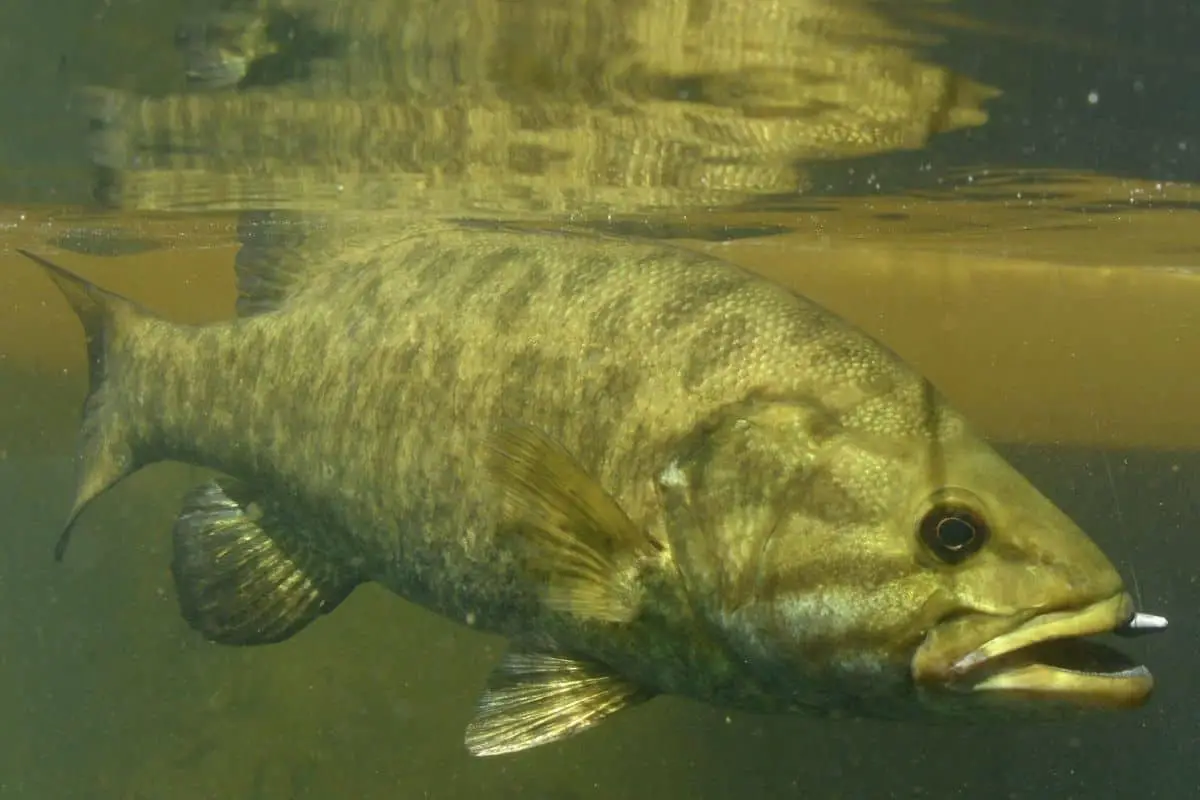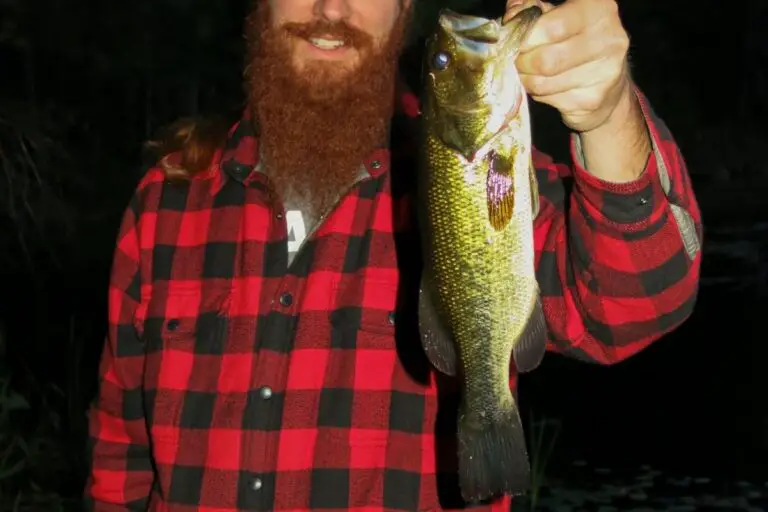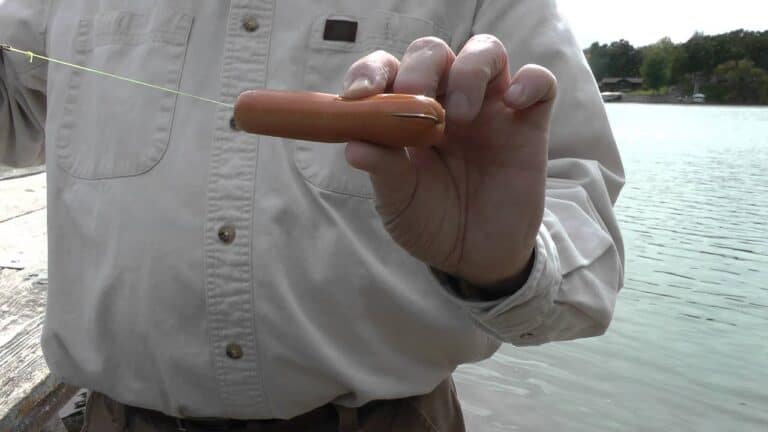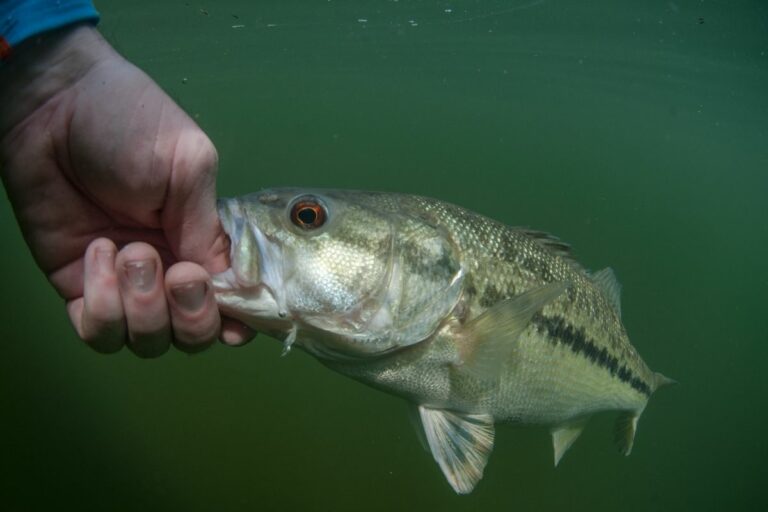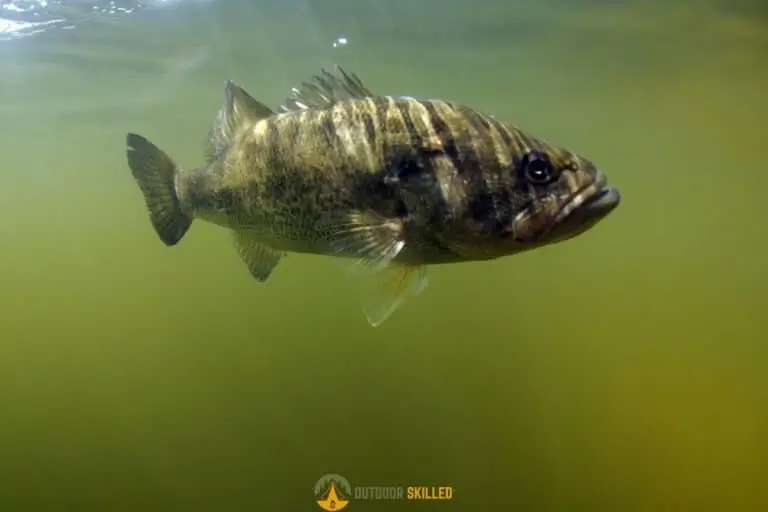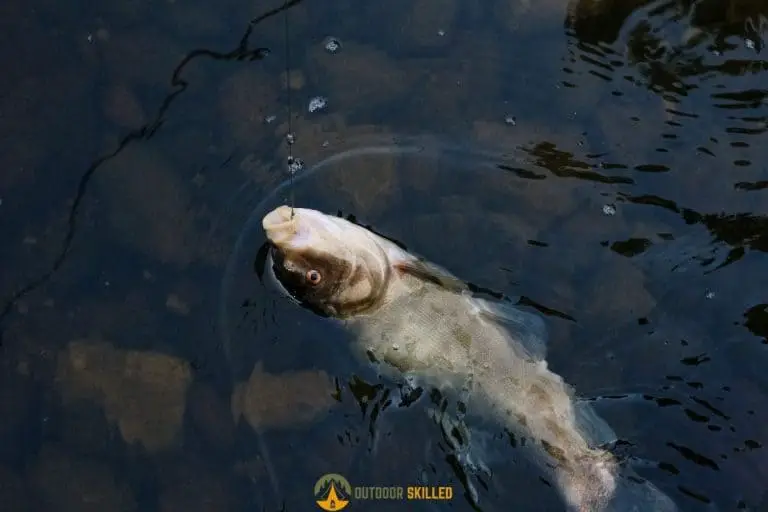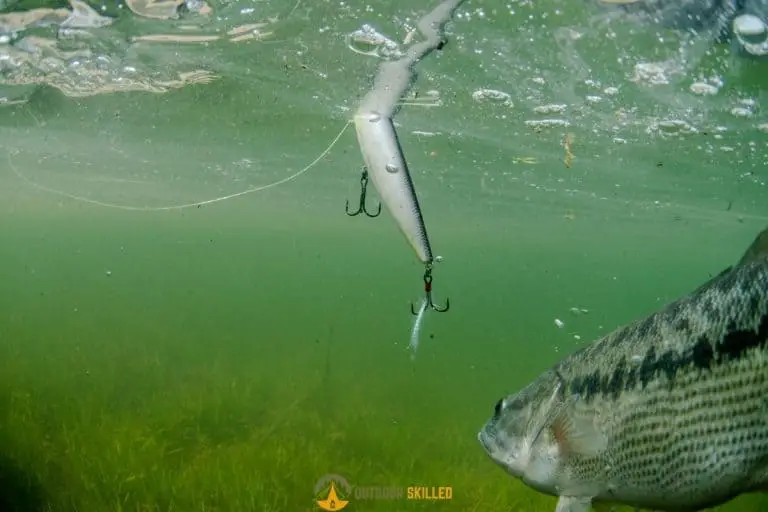Can You Fish for Bass at Night? 7 Pro Tips To Catch The Biggest Bass
Night fishing is a great activity to try during the summertime as it can help you escape from the intense heat of the day as well as avoid heavy boat traffic. It’s also perfect for catching Bass, especially big Bass, as these fish tend to move to shallow water and feed more during nighttime.
So, can you fish for bass at night? You can catch bass at night if you know the best spots to target them and you come well-prepared. You will need to pick the right kind of rod, fishing line, and lures for night fishing. You will also need to bring some essential equipment such as backlights and headlamps.
Keep reading to learn more about bass fish and how to successfully catch them at night
Table of Contents
What You Need to Know About Bass Fish

Before getting into how to catch bass at night, you first need to learn the basics about the different types of bass, where to find them and how they feed.
What Are the Common Types of Bass?
There are many different types of bass. This includes striped bass, peacock bass, sea bass, however, the most popular types among anglers are the largemouth bass and smallmouth bass.
It’s very easy to differentiate between largemouth bass and smallmouth bass as there are some distinctive key characteristics that help set them apart.
Largemouth Bass are green in color with horizontal stripes and spots on their body. Their dorsal fin has a break in it which makes it look like two separate fins on the top of their head and their jawline is long and extends past their eyes.
They usually prefer warm water and slow currents. When it comes to their diet, they are not selective and will generally eat anything. They tend to feed on shad, bluegill, crawdads, worms, lizards, snakes, and even small turtles.
Smallmouth, on the other hand, are brown in color with vertical stripes on their body. Their dorsal fin is one continuous piece without breaks. They have a small mouth and their upper jawline doesn’t extend past their eyes.
They prefer cold water with fast currents and they’re more limited with what they eat because they have a smaller mouth. They have been known to feed on small shiners, crawfish, sunfish, perch, worms, and minnows.
You can learn more about the types of Bass in this bass vs Trout fishing comparison.
Where Can You Find Bass?
The key to being successful when targeting bass is knowing where to target them.
Largemouth Bass can be found all across the US. It’s more commonly found near the south where the water is warmer.
They can mostly be found in lakes or rivers; deep or shallow water depending on the time of year. During the summertime, largemouth bass ultimately prefers shallow waters. They also prefer slow current because it allows them to preserve energy by bringing their food to them without having to fight against the current.
So, if you’re fishing for largemouth bass on a lake or a river, you’ll find them near cover or shelter in calm patches of water. This includes logs, rocks, brush, and weed beds.
Smallmouth Bass can also be found in many areas across the US, however, they mostly prefer the north where the water is colder and unlike largemouth, they prefer fast currents.
They can be found in lakes or rivers around large rocks, stumps, and weed beds because they typically hunt on the edges of cover instead of going straight in.
When Is the Best Time to Fish for Bass?
Largemouth bass can generally be caught all year long while Smallmouth bass can be caught the most during their spawning season which is during late May or early June.
As for the most ideal time of the day to target Bass, it can be during dusk or at night because bass fish tend to move towards the shoreline during those times.
If you are going fishing in winter, you must check out our Coldwater bass fishing complete guide here, it can – and will – make a difference in your next fishing trip.
How to Catch Bass at Night?
To successfully catch more bass at night, you need to prepare the right kind of gear that includes the rod, line and lure you’ll use as well as some other essential equipment for night fishing.
What Kind of Rod and Line to Use When Catching Bass at Night?
You generally need to use heavy tackle whether you’re fishing largemouth or smallmouth bass.
The fishing rod, reel, and line need to be strong because bass can be very large in size and they can fight hard.
The best set-up for fishing for bass at night would be a medium-heavy powered rod that’s 6’7” to 7’8” feet in length, a fast action baitcasting reel with moderate-high speed along with a braided line or a monofilament line with an 8-pound line test.
It’s also recommended to use larger hooks because hooks that are too small can bend or break when bass fight hard. You can go for hook size between sizes 4 to 6/0.
You can check my guide for the best Bass fishing Rods here, and the best bass spinning reels here. You can also check the best bass fishing lines here.
What Kind of Lures to Use When Catching Bass at Night?

Bass can be aggressive when they attack the lure, they will typically slam the hook and take the bait.
The best lures to use when catching bass at night would be spinnerbaits, jigs, vibrating jigs, soft plastics, crankbaits, jerk baits, and topwater lures.
Spinnerbaits, vibrating jigs, and topwater lures are the best for catching largemouth bass. While crankbaits and soft plastics are the best for catching smallmouth.
The color of the lure also matters when you’re fishing for bass at night. In low light conditions, the perception of color changes, and it all tends to fade to gray.
Choosing the right lure color at night mostly depends on how much contrast you want your lure to have with its surroundings.
To put it simply, the lure color that will provide the most contrast is the one that provides the greatest difference in brightness from its surroundings.
It also depends on how bright the moon is. So, if you’re fishing during a pitch-black night with no moonlight, it’s better to go with black, brown, or blue lures. If you’re fishing during a bright shining moon, on the other hand, it’s better to go for an attention-drawing lure color like orange or red.
What Kind of Equipment Do You Need for Night Fishing for Bass?
Here are some of the most essential pieces of equipment you need to bring when night fishing for bass:
Backlight
- You can use a backlight with a blue fluorescent monofilament line. This will make the line stand out in the water and the better you can see your line; the higher chance you have of catching more bass.
- Backlights can be attached right onto your boat. They can illuminate all casting angles, and some of them can even be dimmed so you can control the brightness depending on how much moonlight you have.
I personally like this simple, affordable, and submersible backlight that you can check on Amazon here or by clicking on the image below. It’s dependable and gets the job done.

Headlamp
- Headlamps would be a lot more helpful and convenient than regular handheld flashlights as you will need both hands to be free when you’re trying to net a bass on the side of the boat, pull the hook out, or even take a quick photo of your catch.
Plier and Scissors
- Pliers or Scissors are essential to have whether it’s day or night. You can use pliers to bend the hook to the right shape to get it out of the fish’s mouth after you hook a bass and you can use scissors to easily cut braided lines if you choose to use it.
Bug Spray
- Night fishing for bass will unfortunately expose you to a lot of mosquitos. So, make sure to bring plenty of bug spray to avoid having to swat bugs all night instead of focusing on catching your bass.
Extra Batteries
- You need to be well-prepared to avoid putting yourself in a dangerous situation. Make sure to bring some extra batteries so you don’t end up in the dark when you need to find something in the boat.
Do The Moon Phases Affect Bass Fishing?
Some anglers believe that bass fish only bite during a full moon while some believe the opposite.
The truth is that moon phases don’t actually affect the behavior of bass fish, at least not directly.
Moon phases determine the amount of light you have while fishing at night, which impacts the color of the lure you use, thereby affecting the chances of bass fishing biting.
If you fish during the full moon, you’ll have a brighter moonlight all night so you can use more vibrant lures to increase your chances. While if you fish during a new moon you’ll have minimal moonlight so it’s better to use darker lures.
7 Pro Tips to Catch More Bass Fish at Night
Here are some pro tips that you can follow to help you catch more bass when fishing at night:
- Try to arrive at the location you’re fishing 2-3 hours before sunset to finish setting up your gear and make sure to double-check your equipment before going out on the water.
- Familiarize yourself with the location that you’re fishing while it’s still daylight to avoid any obstacles.
- Set up a couple of the same rod-and-reel combos that can be rigged with the same baits so that you can easily and quickly switch.
- Try to be stealthy and keep your noise to a minimum, especially in a motorboat to avoid scaring off the fish.
- Always wear your PFD when night fishing and make sure you know the weather, and that you’re using the appropriate navigation lights.
- Keep your deck organized so that you have more space to move around without tripping on the net or your tackle box
- Make sure you tell someone where you are going and what time you are expected to return back home.
Related Questions
Does Bass Taste Good?
Bass fish might not be the best tasting for a lot of people. They have murky taste because they sometimes feed at the bottom of the water. While they don’t taste the best, bass fish are very easy to filet. That is because bass fish have fewer bones in their meat to pick out.
What Is the Best Technique for Catching Bass?
The best techniques to use for catching bass include trolling, jigging, flipping and pitching, and fly fishing. The most important factor to keep in mind when fly fishing for bass is to know where to target mainly because bass tends to prefer densely crowded areas of the water. You also need to use heavier gear and larger lures to catch bass.

